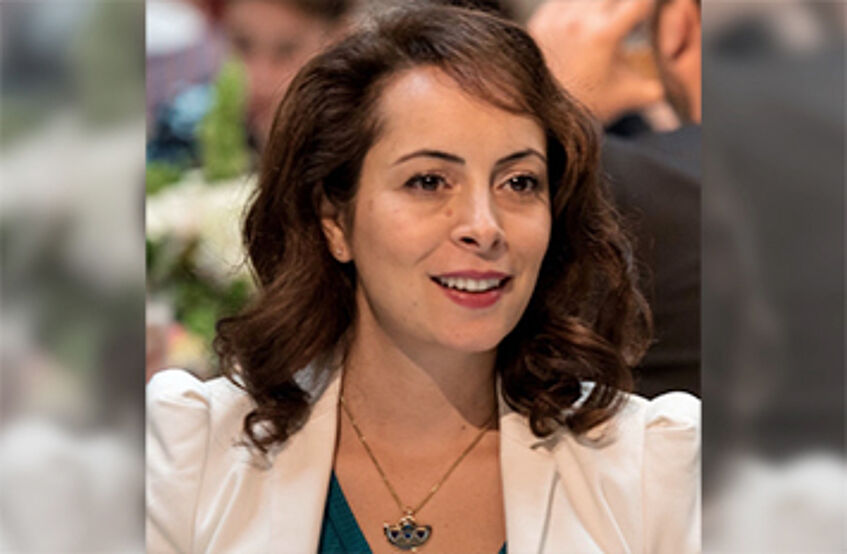The ViDSS Blog
Basic income as a promising peacebuilding tool
Basic income, also known as universal basic income (UBI), has gained global attention to help mend the inequalities in our societies. Interest in this policy tool spiked after the COVID-19 pandemic, which uncovered many of our socio-economic insecurities. Basic income refers to a periodic cash payment unconditionally delivered to all on an individual basis, without means-test or work requirement.
In light of this growing interest, with the Center for Contemporary Solidarity Studies (CeSCoS) of the University of Vienna and colleagues from the Austrian Foundation for Development Research, we organised a symposium entitled Will UBI (Really) Change the world? in May 2023. The event brought together leading practitioners and researchers to discuss the empirical evidence on basic income, including from current pilots in India and Brazil.
My research focuses on the potential of basic income for peacebuilding, i.e. as a recovery tool for countries coming out of conflict. I propose it as a complement to traditional peacebuilding efforts to channel parts of reconstruction aid directly to the people in the form of a basic income. It is often the case that inequalities persist even after a country’s reconstruction, as the most in need do not perceive meaningful changes to their livelihoods. The vast sums made available for peacebuilding go, traditionally, through government institutions, the private sector, NGOs and United Nations agencies working on the ground. The coordination of all these actors navigating through a complex local environment coming out of war makes the peacebuilding task particularly challenging. As a result, ‘winners and losers’ often appear in the reconstruction process, deepening inequalities in societies.
In contrast, a basic income would enable a country’s population emerging from conflict to immediately ‘profit from peace’. It would be distributed directly to every person in a locality with no questions asked about their poverty levels or how they plan to spend this unconditional grant. It ensures that aid reaches every individual without stigmatisation through the traditional targeting process, an inefficient mechanism for finding out who is poor enough to receive aid.
A relevant development for international aid agencies and those interested in basic income is the launch of the New Agenda for Peace in July 2023 by the Secretary-General of the United Nations, António Guterres. This landmark initiative highlights current challenges to international peace and security. As a conflict prevention tool, Mr. Guterres recommends the consideration of “temporary universal basic incomes”.
I am delighted that my direct working-level engagement with the Office of the Secretary-General has contributed to considering basic income as a conflict prevention tool. In a brainstorming session in March 2023, I presented the potential unique benefits of basic income for peacebuilding. These include an inclusive economic recovery creating room for alternative livelihoods, women and girl empowerment, a more effective reconciliation process, strengthening social cohesion, and in time, renewing the social contract.
Basic income has shown transformative effects in communities where cash was given universally, unconditionally, individually and regularly over time. The evidence is very strong regarding how efficiently people in vulnerable situations spend unconditional cash. Accordingly, it is opportune for international aid agencies and national governments to consider a universal approach to cash as a development tool beyond its current use for humanitarian purposes.
With fifty per cent of conflicts relapsing within a ten-year period, we urgently need to think of different approaches to peacebuilding. In his New Agenda for Peace, the UN Secretary-General invites national governments to consider basic income as a policy tool for their international development strategies and funding structures. Combined with the strong evidence from basic income experiments, we hope countries take on this innovative recommendation and support basic income pilots as part of international aid helping countries recover from conflict. (11.08.2023, Diana Bashur)

In her doctoral thesis, ViDSS student Diana Bashur studies basic income as a tool to complement development and peacebuilding interventions. (© Diana Bashur)
Read more
- About basic income
- Basic Income for development and peacebuilding in post-conflict settings
- Centre for the Study of Contemporary Solidarity (CeSCoS) at the University of Vienna
- Symposium: Will UBI (Really) Change the World? Global Evidence on Basic Income
- UN Policy Brief 9, A New Agenda for Peace
- Diana Bashur’s profile on ResearchGate
